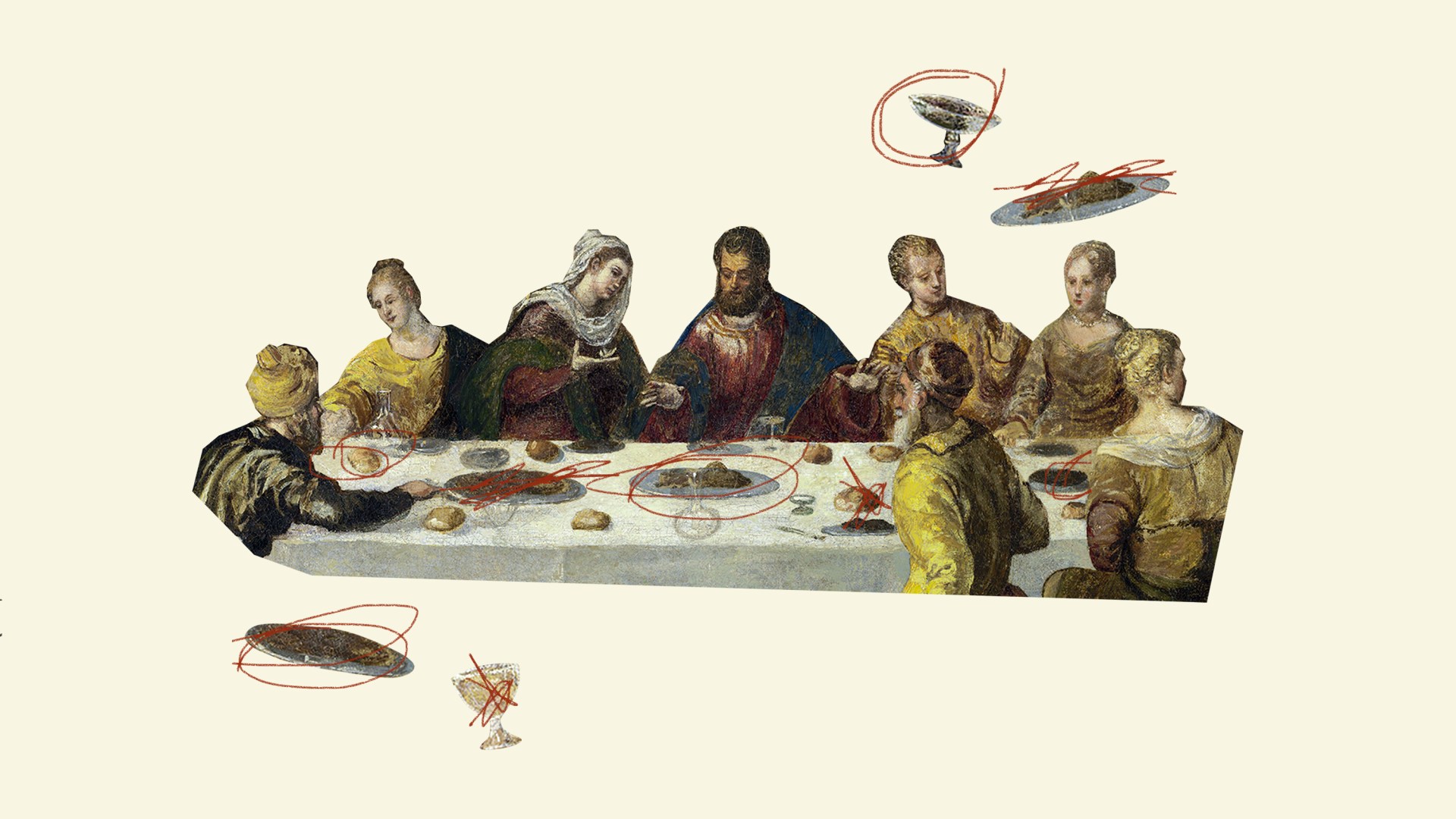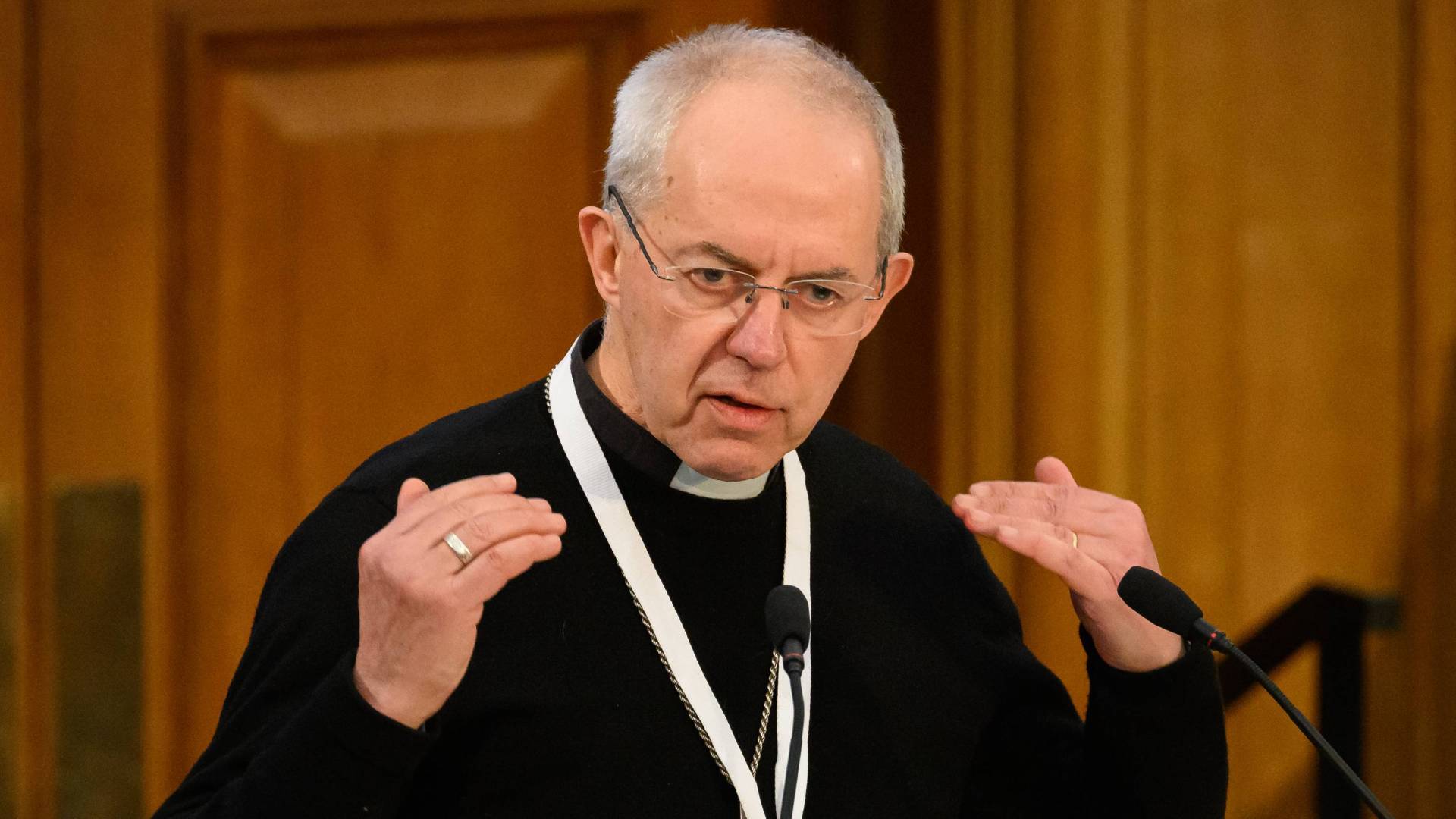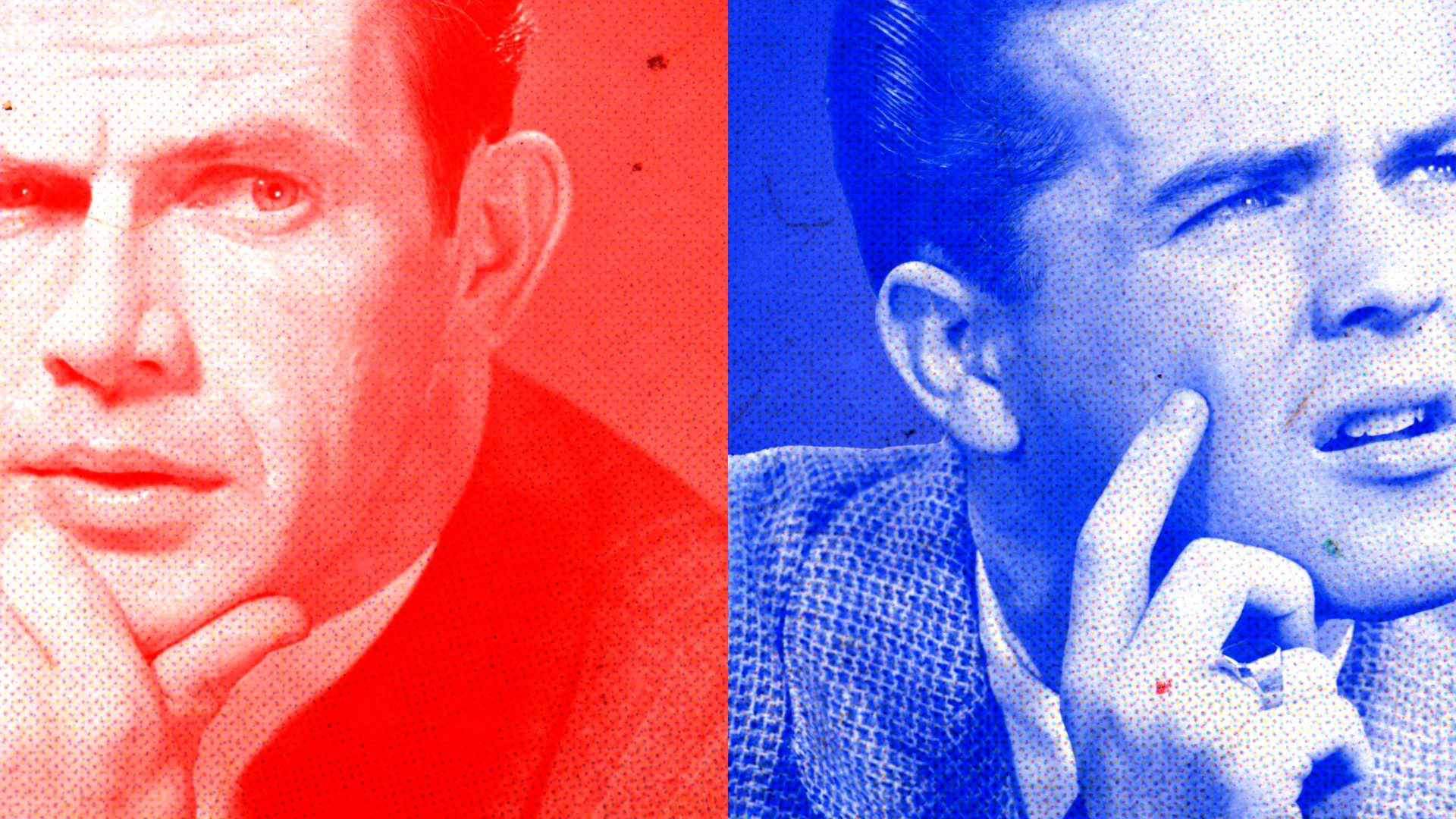If you have recently witnessed an instance of intolerant contempt, the telltale symptom of our increasingly polarized society, you may find yourself wondering, “Why can’t we all just get along? If only we could learn to at least tolerate one another.” Toleration is an important civic virtue, but it may not be enough.
We have probably all prayed for toleration on our way to one of those awkward Thanksgiving family reunions where the political divides are so sharp all we can talk about is football (and even here we must be careful). But even if we escape the day without argument, we may be left with a hollow sense of sadness on our way home. Yes, we may have succeeded in tolerating our “enemies,” but our hearts yearn for something more: love.
When our enemies are distant, the question of loving them can be conveniently ignored. But when the enemy is across the table, in the same committee meeting, or in a group project, the countercultural wisdom and necessity of Jesus’ commands—love your enemy, who is your neighbor (Matt. 5:43–44)—becomes apparent.
For help in parsing out practical instruction of neighborly love, I turn to the apostle Paul in the closing chapters of his letter to the church in Rome. We often think of Romans as a densely argued theological treatise, but it is also—perhaps even primarily—a pastoral letter seeking to reconcile Jewish and Gentile Christians.
In Galatians, Paul insisted, “There is neither Jew nor Gentile … for you are all one in Christ Jesus” (3:28). Roughly a decade later, this claim was still being put to the test in the Roman church. It wasn’t so much that the essential truth was being challenged (Paul no longer had to argue against circumcision as a requirement) but that the truth of the gospel was being challenged by a myriad of small grievances that threatened to turn neighbors into enemies.
One such grievance arose from cultural differences over food shared at communal meals (Rom. 14:1–3). At stake seems to have been whether Jewish dietary laws should be observed at communal meals within the church. In the early years, before Claudius’ expulsion of Jews from Rome in AD 41, the largely Jewish Christian church would have seen these regulations as normative and even essential, but they grew irrelevant as the church became more Gentile.
Far more than preference or habit, food practices—like circumcision, Sabbath, festivals, and so on—marked the Jews as God’s covenantal people. Such practices outlined identity and boundaries, marking who was part of the community and who was not. In such a polarized situation, where lines between groups are drawn too sharply, Paul’s rhetorical strategy is to blur them by substituting the labels weak and strong for the words Jew and Gentile.
Initially, this decision seems liable to further antagonize the parties by giving one a pejorative label with respect to the other. Yet the genius of Paul’s strategy lies in its intentional ambiguity: It is rather difficult to ascertain who in the community is “weak” and who is “strong.” Even today, there is no scholarly consensus on the matter. In either case, Paul leaves room for individuals in both groups whose beliefs and practices don’t align with their larger group’s identity.
His essential strategy is to define an ethic of welcome: “Welcome one another, therefore, just as Christ has welcomed you, for the glory of God” (15:7 NRSV). Broadly applied to the church as a whole, the “strong” have a duty to welcome the “weak” (14:1)—to “bear with [bastazein] the failings of the weak, and not to please ourselves” (15:1).
Paul is not merely calling for toleration, for enduring undesirable behavior for as long as one is able. Toleration can only ever be an interim strategy to keep peace until genuine reconciliation is achieved. Paul’s radical exhortation is to “bear with,” or support, the weak.
As Paul indicated earlier in the argument, this support entails significant behavioral change for the strong: “Therefore let us stop passing judgment (krinōmen) on one another. Instead, make up your mind (krinatē) not to put any stumbling block or obstacle in the way of a brother or sister” (14:13, emphasis added. See also vv. 14–15).
This sentence makes a subtle pun on two different forms of the verb “to judge” (krinō), so as to say essentially, “Don’t judge one another, but judge how you can avoid tripping up another.” In other words, instead of judging others, we’re supposed to judge ourselves.
Although both sides in the conflict are urged to welcome one another, Paul goes on to exhort the strong to support the weak by accommodating their food preferences—he asks them to change their behavior even though it is warranted and correct, as he admits.
Paul’s larger goal is to inculcate a new kind of moral reasoning modeled after the self-giving love of Christ. Just as Christ gave up his life, the strong are to give up their food preferences for the sake of the weak. This is what it means, in this particular context, to “walk in love.”(2 John 1:6)
Behind this respect for conscience lies a further recognition that “the kingdom of God is not a matter of eating and drinking, but of righteousness, peace and joy in the Holy Spirit” (Rom. 14:17). Ultimate significance belongs to the kingdom of God manifested in his church. Preserving this greater good requires relinquishing penultimate goods—in this case, eating what one wishes to eat.
This argument challenges us to carefully reconsider several cherished values and entrenched habits in our society: first, our concept of freedom; second, our habit of painting our enemies with a broad brush; and third, our tendency to sacralize politics.
According to the seminal political philosopher John Stuart Mill, freedom in democratic society is conceived as personal autonomy. Unless I am causing physical harm to my neighbor or to her property, I ought to be free to pursue my own tastes and interests as I see fit.
Mill’s so-called harm principle informs our foundational notion of freedom and its limits in democratic society. It hardly needs to be added that freedom thus defined is widely perceived to be the highest good in our culture. To curtail one’s freedom in deference to the religious scruples of a neighbor would constitute for Mill—and I suspect many Americans today—an affront to the very notion of civic liberty.
Paul’s definition of freedom is radically different—we are to be free from the enslaving power of sin, and its end result is not personal autonomy but righteousness. The choice, as Paul sees it, is not between slavery and freedom but between two different kinds of slavery: “You have been set free from sin and have become slaves to righteousness” (6:18).
When Paul later contrasts “eating and drinking” with “righteousness, peace and joy in the Holy Spirit” (14:17), he is making the point that freedom is not simply about getting our way but about living a new kind of life in which the Spirit frees us to love our neighbor.
By contrast, personal autonomy—limitless desire restricted only by harm against others—leads to polarization. When autonomy is seen as the highest good, conflicting desires create division. People form tribes to protect their interests, seeking power through majority rule. And in a system where (ideally at least) the majority wins, it is an obvious advantage to be on the “strong” side, not the “weak” one.
But Paul’s idea of freedom-as-righteousness through neighborly love challenges this logic. Freedom from sin’s control, entering God’s kingdom of righteousness, peace, and joy, promotes unity over division. Paul’s vision is a communal one—Jew and Gentile worshiping God together (15:7–13)—which polarizing autonomy cannot sustain.
Second, we often mischaracterize our enemies, creating monolithic and inaccurate stereotypes: “If you believe X, then you must also believe Y.” Alan Jacobs characterizes such unfair oversimplification as “in-other-wordsing.” Rather than working to understand the nuance of our opponents’ views, we reduce our opponents’ views to unflattering sound bites like “In other words, my opponent thinks we should harm the vulnerable.”
By contrast, Paul’s vision of freedom calls us to view our enemies as ourselves. His strategy in Romans 14–15 blurs the lines between conflicting groups, countering our tendency to misrepresent our opponents and their motives. He exhorts both sides to act out of embodied devotion to Christ, whether they observe certain days or not, choose to eat or abstain (14:5–6).
This approach is not rhetorical but rooted in a fundamental value: We belong to the Lord in life and death (14:7–8). Paul likens believers to household servants, who should not judge each other since we all serve the same master (14:4). This shift in perspective encourages seeing enemies as fellow servants, which is a crucial step toward loving one’s neighbor as oneself.
Third, Paul’s ethic chastens our habit of sacralizing politics—of our prideful assumption that God thinks and judges as we do and that his will is aligned with our own agendas. When we sacralize our political agendas, we effectively domesticate God and invoke his authority in judging our neighbors.
Writer Anne Lamott warns against assuming God hates the same people we do, a mindset that fuels violence like the First Crusade’s slogan, Deus vult (“God wills it!”). This is the danger of identifying our penultimate goods with God’s ultimate good—and yet we so often defend them as such.
Paul emphasizes that God is above our divisions and that we all face God’s judgment equally: “Each of us will give an account of ourselves to God” (14:12). Our ultimate answerability before God cannot but chasten our impulse to weaponize him and to hold our enemies accountable to our own (imperfect) standards of judgment.
Julien C. H. Smith is professor of humanities and theology at Christ College, the honors college of Valparaiso University. His most recent book is Paul and the Good Life: Transformation and Citizenship in the Commonwealth of God.








































































